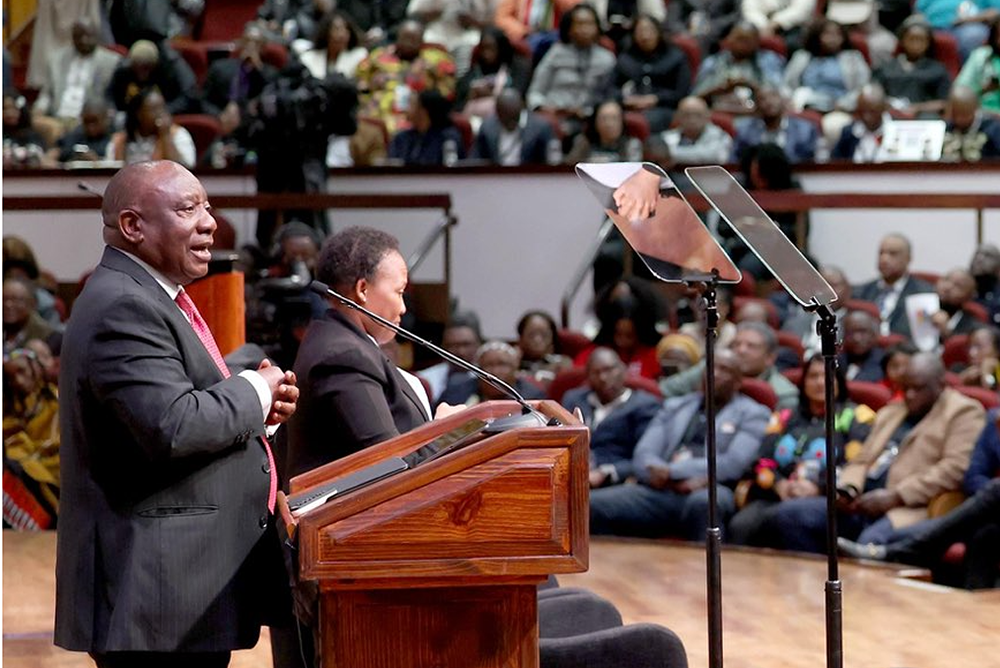The inaugural National Convention of the National Dialogue concluded with a resounding call for citizens to take ownership of shaping South Africa’s future.
Delivering the closing address Co-Deputy Chairperson of the Eminent Persons Group, Lindiwe Mazibuko, said the event revealed the extraordinary spirit of South Africans - from young leaders urging boldness, to communities affirming their role in driving change.

“We have witnessed a spirit so alive and thriving in these halls: those who have stepped up to lead, young voices reminding us to be bolder, and communities claiming their role in shaping our future,” Mazibuko said.
She emphasised that the Convention was never meant to provide all the answers but to serve as a foundational step towards a long-term citizen-led process.
“This inaugural Convention was never intended to provide all the answers. It is a foundational step, setting the agenda for the long journey ahead. It is a powerful example of inclusivity and the beginning of a process that truly belongs to citizens in every community,” she explained.
Held at the University of South Africa over two days, the first National Convention of the National Dialogue, brought together government, civil society, faith leaders, youth representatives and communities to deliberate on pressing issues facing the nation.
The second day began with a feedback session from the nine Dialogue Labs, this is where over 1 200 delegates were deeply engaged. The Dialogue Labs raised substantial issues and discussed the values, expectations and methodology for the National Dialogue.
The labs were formed as part of the process to unearth the ideas and solutions the country needs to implement and explore in fixing what’s broken.
Mazibuko situated the dialogue within South Africa’s history of consensus-building, drawing parallels to Convention for a Democratic South Africa (CODESA) negotiations, the adoption of the Constitution, and the Truth and Reconciliation Commission. These milestones, she said, were reminders that dialogue has always been the foundation of the country’s democracy.
“These historical lessons serve as a reminder of our shared identity and responsibility. South Africans do not shy away from challenges; we face them together,” she said.
Mazibuko said citizens were demanding real action on jobs and livelihoods, safety, corruption, education, gender-based violence, and healing from historical trauma.
“These are not abstract concepts; they reflect the daily lives of South Africans. The road ahead will not be easy. Our obstacles are deep-rooted and complex; we will have setbacks and disagreements. There may be moments when despair seems more appealing than hope,” she said.
Mazibuko underscored that while the road ahead will be difficult, the Eminent Persons Group remains committed to supporting the process.
“This dialogue is for the people, and it belongs to you. South Africa’s greatest strength lies not in the absence of challenges but in our collective determination to face them together. We can and will transform dialogue into lasting change for all South Africans,” Mazibuko said.
The Convention’s outcomes will form the basis of a national agenda-setting process for the next years, with communities at the centre of shaping solutions.
Establishment of the Steering Committee
The Convention was intended to agree on the approach and modalities for the nationwide public dialogues at sectoral and community level. It was also meant to outline and agree on the key themes for discussion in the National Dialogue and establish a Steering Committee.
However, due to disagreement over the exclusions of some of the sectors, it was agreed that delegates would submit the names of people they wanted to be part of the Steering Committee, which will consist of 30 people.
It was proposed that the Steering Committee consists of the following: 22 sectoral representatives to ensure broad-based representation, three representatives from the Preparatory Task Team (civil society component) to support continuity, two representatives of the Head of State to ensure a link with the Convenor and the Inter-Ministerial Committee, and three additional people with appropriate experience and capabilities, to be co-opted to provide additional support. – SAnews.gov.za



 Facebook
Facebook Twitter
Twitter WhatsApp
WhatsApp